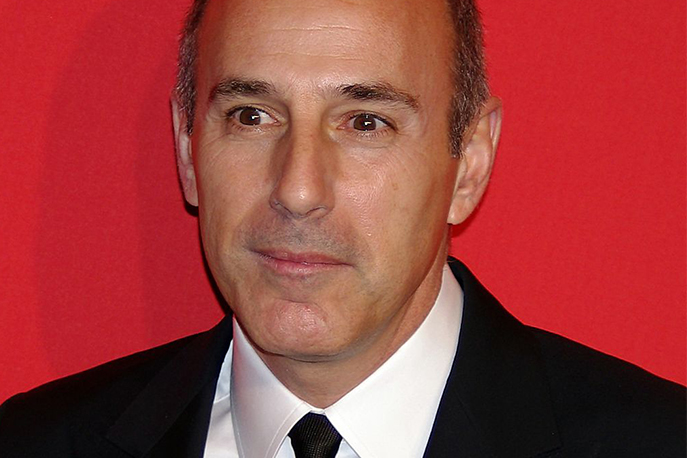Photo by David Shankbone. Licensed under Creative Commons Attribution 3.0 Unported
It’s been almost two years since MeToo became a household phrase globally, and we’ve begun to talk quietly about redemption for high-profile figures whose harmful behavior was spotlighted. Aziz Ansari came back this year with his own Netflix comedy special. Louie CK was back on stage less than a year after his MeToo moment. And news reporter Matt Lauer was predicting his own return to TV. That is, until information from an advanced copy of journalist Ronan Farrow’s much-anticipated book Catch and Kill detailed allegations of Lauer raping a former NBC News employee in his hotel room while covering the 2014 Winter Olympics in Sochi, Russia.
Lauer moved quickly to the defense, releasing a letter to Variety emphatically saying the allegation is “categorically false, ignores the facts, and defies common sense” while discrediting the survivor by describing a mutual and consensual extramarital affair. Despite the survivor confirming she was too drunk to consent, despite the power differential that meant Lauer could make or break her career in news.
Far too often we hear sexual assault framed as a “he said/she said” scenario – a move that seeks to blur facts and discredit or shame survivors. In fact, those who perpetrate sexual assault use alcohol in three strategic ways: to lower the inhibitions of the other person, to decrease their own inhibitions about carrying out sexual assault, and to ensure the other person won’t be believed. Lauer is banking on society’s ease with blaming victims for their own abuse – and turning the tables to frame himself as the victim worthy of our protection and sympathy. If we are ever to live beyond MeToo, then accountability cannot mean paying lip-service.
Accountability isn’t only on the individual whose behavior is at best inappropriate or at worst criminal. Institutions, corporations, and communities must face the music and accept how our culture silences survivors and ignores them to the point of condoning these behaviors. Farrow documents in the book a pervasive culture of complicity at NBC, and articles have come out detailing Lauer’s misconduct and behavior were well known. And central to NBC’s response was a settlement tied to a non-disclosure agreement, tying the survivor’s hands from speaking.
The lesson for companies and organizations? It’s time to step up and create workplaces that are safer, healthier, and more equitable for all employees. This starts by implementing workplace policies that emphasize transparency, clear and confidential reporting processes, and appropriate responses for addressing incidents of sexual assault, misconduct, and abuse. Employees deserve better and our corporate leaders must be part of the solution to end sexual violence once and for all.

